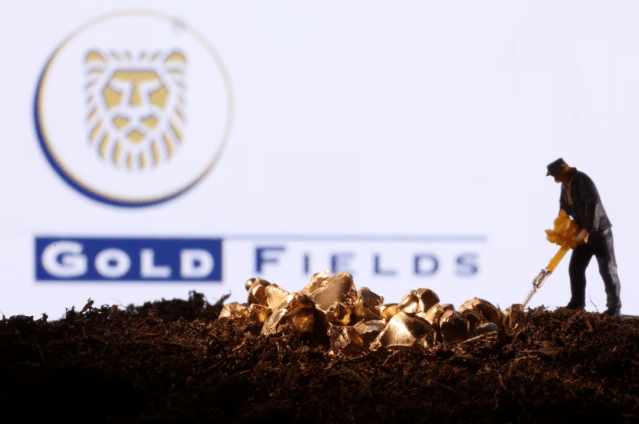By Kizito CUDJOE
The government’s decision not to renew the mining lease of Gold Fields’ Damang operation could threaten investor confidence in the country’s mining sector, the Ghana Chamber of Mines has said.
The Chamber warned that the decision may cast doubt on the long-term security of mining investments in Ghana and send negative signals to both domestic and international investors.
“This development has the potential to undermine Ghana’s hard-earned reputation as a leading destination for mining investment in Africa,” the Chamber said in a statement.
Gold Fields, one of the country’s largest gold producers, has been operating the Damang Mine in the Western Region since 1997. The mine is a significant contributor to local employment and Ghana’s gold output.
“The mining sector remains the most significant contributor to Ghana’s economy, providing substantial employment, foreign exchange earnings, and revenue for national development.
In 2024, for instance, gold exports resulted in export revenues of about US$ 11.5 Billion and this represented over 50 percent of Ghana’s total export earnings for that year,” the Chamber noted.
It interpreted that “In effect, it is important that in addition to the direct effects of such decisions, the unintended consequences are also carefully considered to avoid outcomes that could be negative for all stakeholders.”
The Chamber reckoned that while it is the “government’s prerogative in the granting and renewal of mining leases,” it also maintained that a predictable and transparent regulatory environment is crucial for attracting and retaining the investments necessary to sustain and grow this vital sector.
On the back of these developments, the Chamber called on all parties involved to engage in open and transparent discussions to understand the underlying reasons for this decision and to work towards an amicable resolution.
“It is imperative that all concerns are addressed in a manner that upholds due process, respects contractual obligations where applicable, and provides clarity and certainty for mining companies operating in Ghana.
This will ensure a stable and predictable investment climate, which is essential for the continued growth and sustainability of the mining sector and its contribution to Ghana’s socio-economic development.”
The Chamber reiterated its commitment to working closely with the government, regulatory bodies, and other stakeholders to ensure a conducive environment for responsible and sustainable mining practices that benefit both the country and investors.
There has not been any official statement from the government for rejecting the lease renewal application for Gold Fields Damang Mine.
The decision comes amid growing scrutiny of mining agreements in Ghana, as the country seeks to maximise value from its natural resources while balancing investor interests.
Ghana is currently Africa’s top gold producer and relies heavily on the sector for foreign exchange and employment.
Mineral analysts say inconsistent policy decisions could affect the country’s ability to attract long-term capital in the extractive sector.
Gold Fields Ghana Limited on Sunday announced to its employees at the Damang Mine that it has initiated a phased wind-down of operations, including a gradual reduction in production, in what it described as an “orderly shutdown” of activities.
This follows the government’sdecision on the Damang Mine mining lease.
Abosso Goldfields Limited (AGL) is a Ghanaian registered company that owns and operates the Damang Gold Mine. Gold Fields Ghana Holdings Limited holds a 71.1 percent interest in AGL, IAMGold 18.9 percent and the Ghanaian Government the remaining 10 percent.
Damang oversees five Prospecting Licences and two Mining Leases: the Damang Mining Lease and the Lima South Mining Lease, covering a total area of 8,111 hectares (ha).
The mine exploits oxide and fresh hydrothermal mineralisation in addition to Witwatersrand style palaeoplacer mineralisation. The hydrothermal mineralisation is located in Tarkwaian sediments and is the only deposit of its kind, located on the eastern side of the Ashanti Belt in southwest Ghana.
The Damang Plant processes 5.1 metric tons (Mt) per annum from a blend of approximately 37 percent oxide ore and 63 percent fresh ore, sourced from the open pit mining operations and existing surface stockpiles. Process feed for the year ending 30 June 2009 comprised 5,0 Mt at a yield grade of 1.3 grams per tonne (g/t Au) for 200 thousand ounces (koz).
The Damang concession covers a total area of 27,174 ha. Abosso Goldfields holds a mining lease in respect of the Damang Mine dated 19 April 1995, as amended by an agreement dated 4 April 1996.
The lease which is about to expire, according to the Company’s corporate information on its website, “is renewable under its terms and the provisions of the Minerals and Mining Law, by agreement between Abosso Goldfields and the Government of Ghana.”










